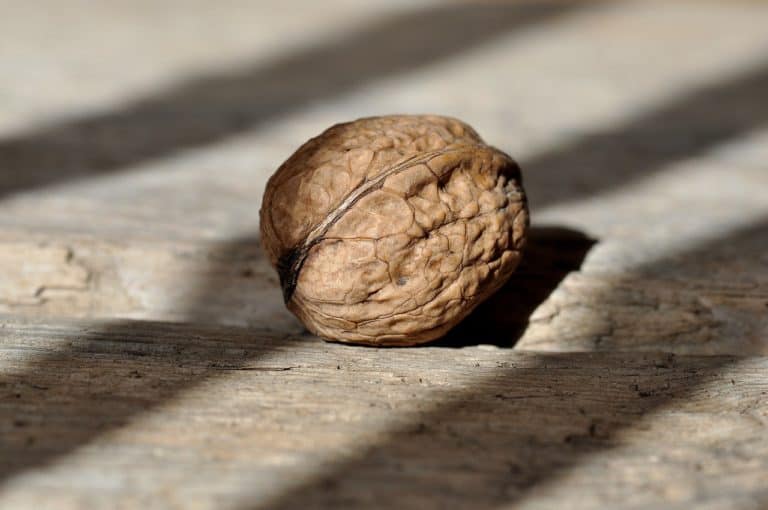Much has been speculated about and explored over the years concerning the relationship between the herb saw palmetto and enlarged prostate (aka, benign prostatic hyperplasia, or BPH), including its impact on lower urinary tract symptoms. Fortunately, that research continues, and the findings are still supporting the use of the herb in the management of each of these areas of concern. Here are some of the latest findings on saw palmetto and enlarged prostate and why you may want to consider taking this herbal remedy for symptom relief.
Saw palmetto and enlarged prostate
Perhaps the best known use of saw palmetto for men with prostate issues is for management of an enlarged prostate. Since more than half of men older than 50 will experience symptoms of this prostate condition, it’s important to find ways to manage it effectively.
In a recent double-blind, placebo-controlled study consisting of more than 350 men with BPH, the authors found important benefits associated with use of the herbal remedy. For example, men who took saw palmetto (Serenoa repens) had significant improvement in peak urinary flow, voiding symptoms, quality of life, erectile function, and prostate symptom scores when compared with men who took placebo.
The findings of a 15-year study of 30 men with BPH revealed that taking 320 mg once daily for all of those years halted progression of the prostate condition and did not cause any adverse effects. The authors concluded that taking 320 mg of saw palmetto daily for a prolonged period is an effective and safe way to prevent the progression of BPH.
Since medications are one of the main ways to treat BPH and urinary tract infections, it’s a good idea to pit drugs against natural alternatives to see how each one fares. That’s what happened during a recent review and meta-analysis from Spain that involved 19 studies and 5,800 patients. Compared with placebo, the saw palmetto supplement was better at improving nighttime urination and flow rate.
When compared with alpha blockers (e.g., alfuzosin, tamulosin; often used to treat BPH), improvements between the two were similar on International Prostate Symptoms Score and flow rate. After six months, the saw palmetto supplement was similar to 5-alpha reductase inhibitors (e.g., finasteride, dutasteride) in terms of International Prostate Symptoms Score.
Overall, use of saw palmetto had no negative impact on sexual function or prostate-specific antigen (PSA) levels. Men taking saw palmetto did show a slight decrease in prostate volume. The most frequent side effect of taking saw palmetto supplement was gastrointestinal disorders, which occurred in 3.8 percent of users.
The investigators concluded that saw palmetto is “an efficacious and well-tolerated therapeutic option” for treating BPH and associated lower urinary tract symptoms.
Saw palmetto and prostatitis
Several recent studies have examined the use of the herb on men with prostatitis, especially the most common type, chronic prostatitis/chronic pelvic pain syndrome, or CP/CPPS. In a 2017 Chinese study, the authors found that men with chronic prostatitis who took saw palmetto experienced significant improvements in lower urinary tract symptoms, including urinary frequency, urinary flow rate, urinary volume, nighttime urination, and quality of life when taken at 320 mg daily.
A more recent (2019) published report noted that various natural remedies, including saw palmetto, “showed a positive effect on symptoms and quality of life without side effects” among men with CP/CPPS. If you suffer with prostatitis, you may want to consider using saw palmetto to help relieve symptoms.
Before you take saw palmetto supplements for any condition, you should discuss dosage options with a knowledgeable healthcare practitioner. A typical dosage is 320 mg daily split into two doses.
References
Magri V et al. Multidisciplinary approach to prostatitis. Arch Ital Urol Androl 2019 Jan 18; 90(4): 227-48
Shao YP et al. Saw palmetto fruit extract improves LUTS in type IIIA prostatitis patients. Zhonghua Nan Ke Xue 2017 May; 23(5): 417-21
Vela-Navarrete R et al. Efficacy and safety of a hexanic extract of Serenoa repens (Permixon) for the treatment of lower urinary tract symptoms associated with benign prostatic hyperplasia (LUTS/BPH): systematic review and meta-analysis of randomized controlled trials and observational studies. BJU International 2018 Dec; 122(6): 1049-65
Vinarov AZ et al. 15 years’ survey of safety and efficacy of Serenoa repens extract in benign prostatic hyperplasia patients with risk of progression. Urologia 2019 Feb; 86(1): 17-22
Ye Z et al. Efficacy and safety of Serenoa repens extract among patients with benign prostatic hyperplasia in China: a multicenter, randomized, double-blind, placebo-controlled trial. Urology 2019 Mar 14







